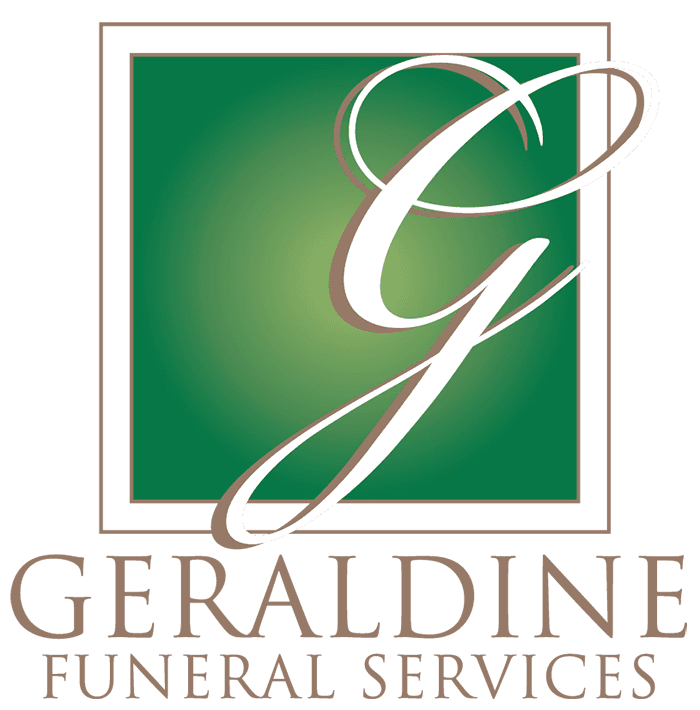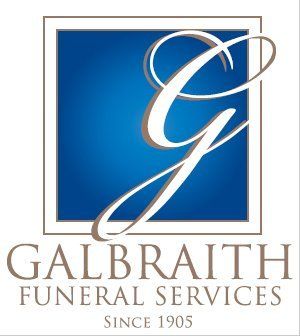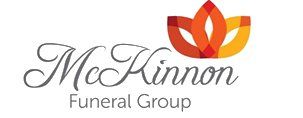Geraldine & Galbraith Funeral Services! Call Us Today! 03 693 8788
Alexander Wilson
19 April 2024 - 1.00pm
https://www.gulliver-tyler.co.nz/obituaries.html?funeral=TD5Qy
For special funeral services in Geraldine, Temuka, Ashburton and Timaru
Arranging A Funeral
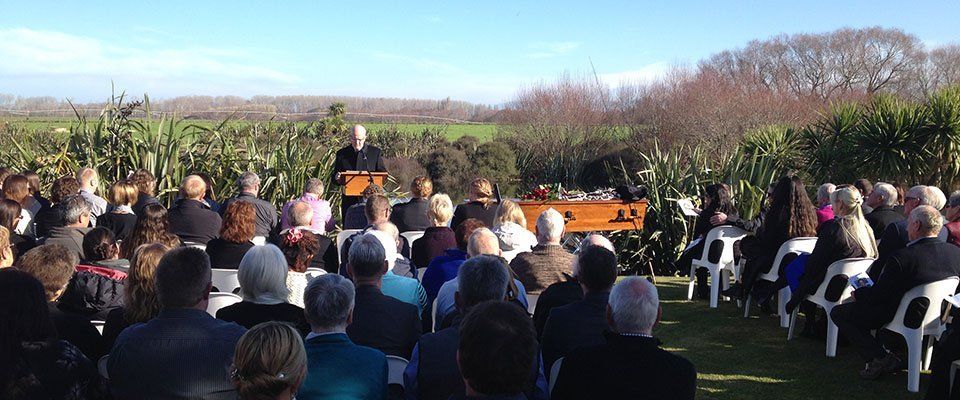
Call Us Now!
Everything You Need To Know About Arranging A Funeral
Someone Has Died
What Happens Now? What you need to know when someone has died.
No matter what the circumstances, you can contact us at anytime and engage us to take care of the deceased person and the funeral arrangements, on your behalf.
Immediately after a death occurs
Where have they died and what are the circumstances of the death?
Hospital, Rest Home, Hospice.
• If they have died in a hospital, rest home or hospice the staff will know how to proceed.
• If they have died at home and the death was expected then contact their GP who, in most cases, will come around and certify life extinct and sign the necessary paperwork.
• Contact us and engage us to take care of the deceased person and the funeral arrangements.
• Burial or cremation - a choice must be made as there are different legal requirements for cremation as opposed to burial and affect the paperwork required by the certifying doctor.
•When all legal requirements have been met by the doctor, hospital, coroner or care facility, the Funeral Director will transfer the deceased to the funeral home and make an appointment for one of our funeral directors to meet with you and your family to discuss funeral arrangements
Unexpected/unexplained death
Should the death occur suddenly, phone the ambulance service in the first instance.
Should your GP not be able to certify cause of death you will in most cases, receive a visit from the Police, who acting as the Coroners agent, are there to ascertain the circumstances of the death. They will then know how to proceed.
• You can at any time throughout the process, contact us and engage us to take care of the deceased person and the funeral arrangements.
• Burial or cremation - a choice must be made as there are different legal requirements for cremation as opposed to burial and affect the paperwork required by the certifying doctor.
•When all legal requirements have been met by the doctor, hospital, coroner or care facility, the Funeral Director will transfer the deceased to the funeral home and make an appointment for one of our funeral directors to meet with you and your family to discuss funeral arrangements
Should you be unsure at any time, call us for advice and help on how to proceed - 03 693 8788 day and night.
Arranging A Funeral
What happens first?
Upon engaging us to carry out your funeral requirements, we will arrange to transfer the deceased person to our premises. We will also make an appointment for one of our funeral directors to meet with you and your family to discuss funeral arrangements.
Burial or Cremation.
This is one of the first questions you will be asked when you engage us.
You may know the wishes of the deceased. If not then a decision will have to be made by the next of kin.
This decision affects the immediate paperwork done by the doctor or medical examiner and funeral director. It also determines the final disposition of the body.
When to hold the service?
There is no specific time period to wait after someone has died, in which to hold the service, as there are many factors to be considered before the date and time is set.
Firstly, allowing time for family and friends to be a part of the planning and be present at the service. If the case has been referred to the coroner it may be 4 - 5 days before a service can be held. The time of year can dictate when the service can be held i.e. Easter, Christmas and New Year holidays or public holiday weekends. The availability of the venue. Many factors go into choosing the day and time.
We will work with you to choose the time and day that works for your circumstances.
At the funeral arrangement we will discuss and determine the following:
• The Funeral Director will collect information to register the death.
• You will be asked to decide upon a date, time and venue for the service which the Funeral Director will book.
• Choose a casket. The Funeral Director will have a range of caskets for you to choose from.
• Engagement of clergy/celebrant.
• Discuss embalming of the body. If it is a direct cremation then no embalming may be necessary. The Funeral Director will liaise with the Embalmer in relation to the date of the funeral and the state of the body and whether certain circumstances will take place, as to whether embalming is required.
See Embalming for more details.
• Time together - Do family and friends wish to view the deceased at our premises? Do you wish to take them home, to the marae?
• Collect clothing for dressing of the deceased.
• Create an obituary/funeral notice and place in newspaper(s)
• Do you or the deceased person have a preferred charity for donations to be made in their name at the service?
The Funeral Director will also carry out the following:
• Register the death and order the Death Certificate
• Family mail – to be sent to funeral directors for collection or direct to family PO Box
• Design and create service sheets with your choice of images, text and content.
• Refreshements following the service
• Engage a florist, caterer, musicians/sound tech and equipment if not provided at venue
• Organise audio visual presentation with your chosen images and music
•Payment for Celebrant/Clergy, Organist/Pianist/Piper unless the family wish to pay them independently
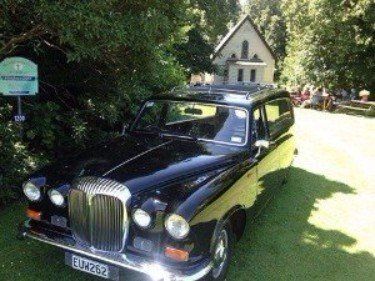
The Funeral
• Deceased person transferred to funeral venue
• Funeral Director meets and greets family and funeral attendees
• Funeral Director ensures service runs to plan
• Process to the cemetery/crematorium at conclusion of service
After the Funeral
The Funeral Director will carry out the following:
• Collects ashes from crematorium
• Processes all supplier and subcontractor invoices
• Account forwarded to family/executor for payment
• Funeral Director pays follow-up visit to family
• Any family mail being collected at funeral home is delivered directly to family
• Completes paperwork, including applying for the Death Certificate
• Organise the ashes interment at cemetery should you require our services to do so.
• Organises headstones or plaques for grave or ashes plot
Why Funerals Matter
Why have a funeral service? What is the purpose of having a funeral service?
Ceremony is an important part of our lives. Through the act of ceremony we mark important rites of passage, such a coming of age, moving home, anniversaries, marriages, births and death. No matter what nationality or faith, we all have our own ceremonies. rites and rituals that we perform at the time of a death.
A funeral service is a ceremony in which we say goodbye to someone who has died, we acknowledge, remember and celebrate their life.
The process of organising and taking part in a funeral service aids the grieving process by giving a focus to the loss of someone special and offers support to family and friends at a time when they are most vulnerable. By gathering together and sharing of stories, playing significant music; reading meaningful verses, singing, looking at photos and videos and reminiscing about our time together when they were alive, we begin the process of saying goodbye and accepting their death.
For many reasons, unlike the other important occasions in our lives, a funeral service is mostly unplanned major event. None of us know the circumstances, time, date or place of our death and so advanced planning for what we want to happen when we die, makes life easier for those we leave behind. Talking about our wishes doesn't make our time come any faster. Begin planning today. See Preplan and Prepay
Burial or Cremation
Burial
In New Zealand, burials are constrained by law to official cemeteries and traditional burial grounds.
What is involved in obtaining a burial plot?
Decide where you would like the burial to take place unless this is already known. Either you or one of our funeral directors will contact the local authority that governs the cemetery of your choice and advise on the availability, cemetery restrictions and costs.
You can have a single plot with room for two interments - double depth graves (one on top of the other) or double plot (side by side) with room for four interments. However this is dependent on the topography of individual cemeteries. Some cemeteries don't allow double depth graves due to issues with groundwater or soil composition.
If there is a pre-purchased plot or the burial is a second interment we will liase with the local authority on your behalf, to arrange for the opening of the grave and the booking of the arrival time for the burial.
Fees and costs.
There is a plot purchase fee, an additional cost for the opening and closing of the grave and any supplementary fees such as lowering device, short notice, Saturday or public holiday fees. You have the option of arranging a memorial stone with a monumental mason to be placed at the grave site at a later time. There may be certain terms and conditions imposed by the local governing body, about what type of headstone or commemorative plaque you can have.
We are able to assist you with all of these details if so required.
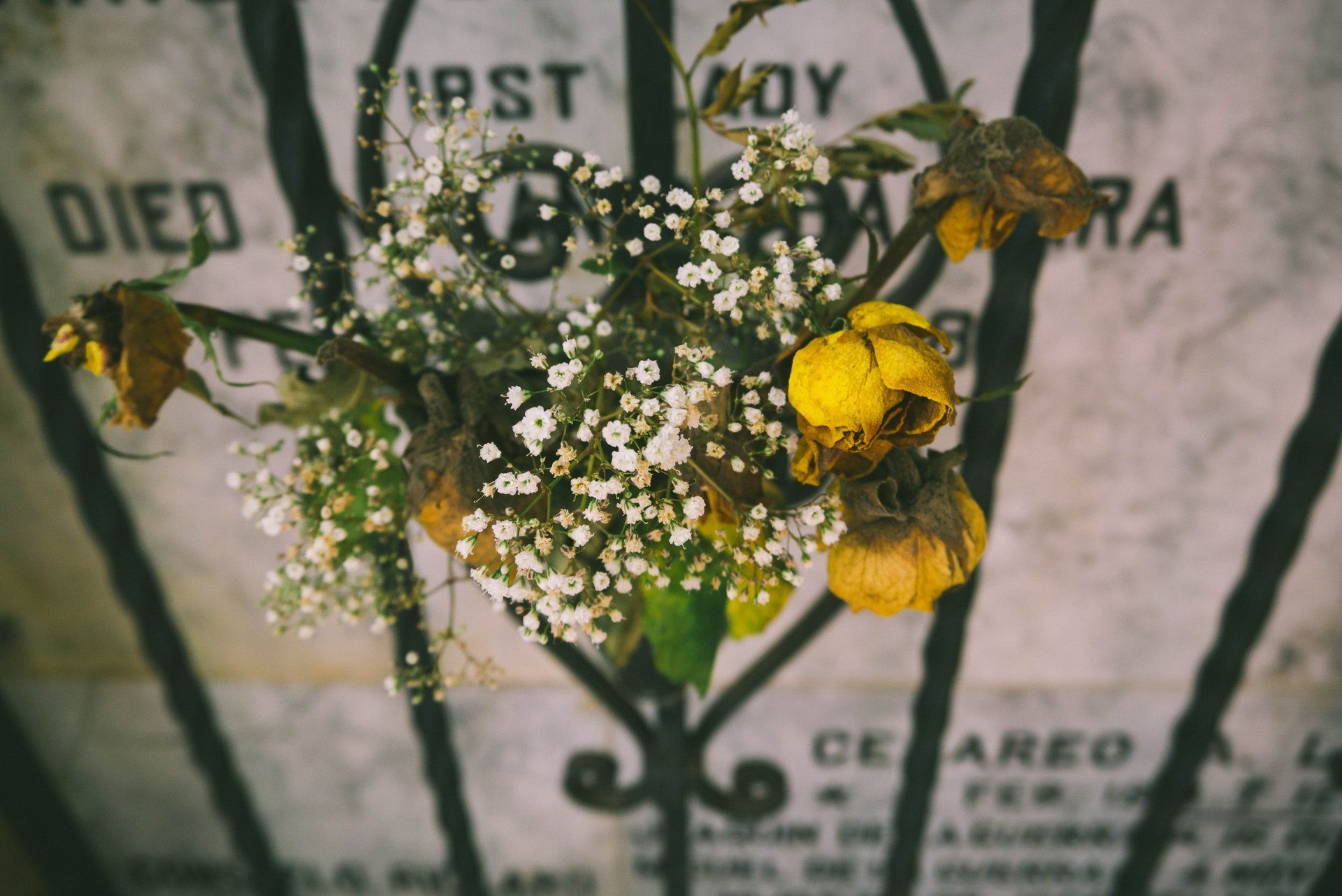
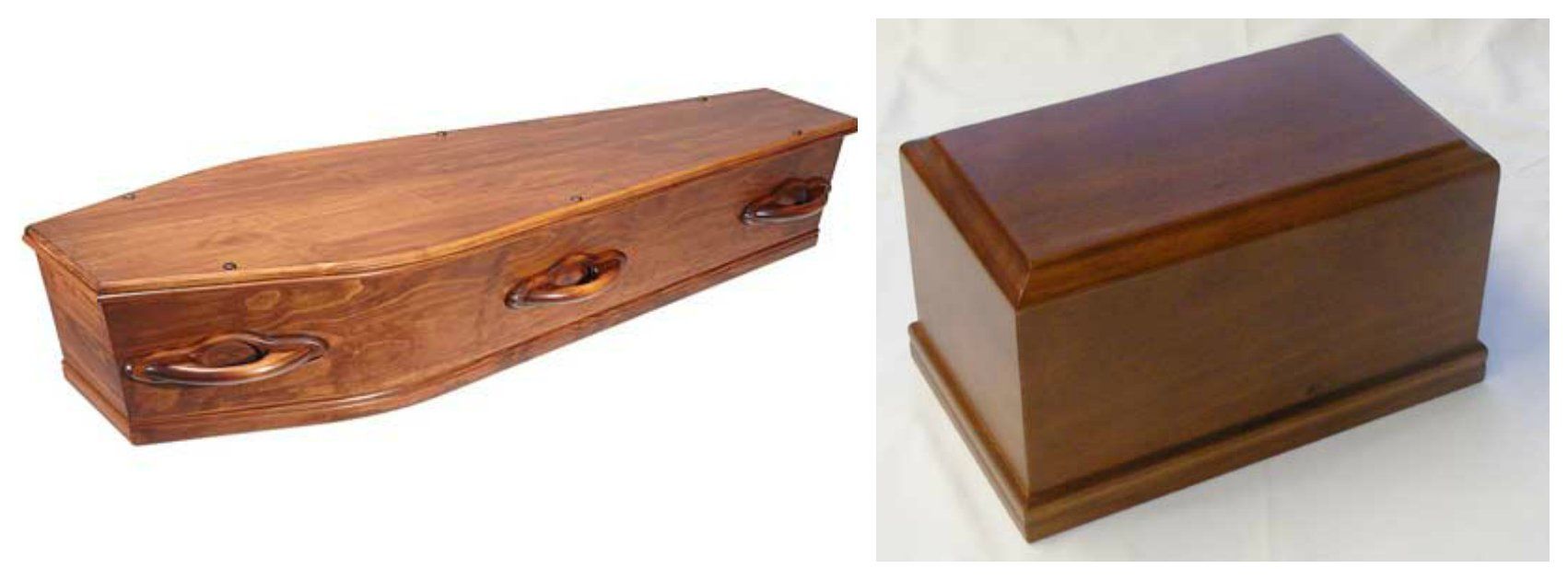
Cremation
The rate of cremation in New Zealand is in the range of 70 - 80 percent, and is the predominant means of disposing of our dead.
Types of Cremation service
Cremation can take place before or after the service has been held.
If before, ashes can be present at the memorial service or alternatively you can have a traditional funeral service with the casket present and a cremation to follow.
Funeral or memorial services can take place at most venues, whether it be a funeral home chapel, a church, private residence, sport club, indoors or outdoors, with no requirement for you to process onto the crematorium if you choose not to.
Should you choose to accompany the casket to the crematorium, a booking will need to be made at the crematorium to tie in with the end of the service.
Selwyn District Funeral Services has access to the crematorium at Flaxton Park in Rangiora, owned by the McKinnon Funeral Group, as well as other cremation facilities in the Canterbury district if preferred.
How soon can you collect ashes?
Ashes are normally available for collection no sooner than two working days after the service but in some cases can be sooner by prior arrangement.
Can ashes be divided up?
Yes they can. This is best discussed with us at time of arrangement so we can inform the relevant crematorium of your wishes and procure any paperwork required should any of those portions be going overseas.
Scattering or burying of ashes
There are some restrictions as to where you can dispose of ashes.
All local authorities make provision for ash interments in their cemeteries.
Alternatively ashes can be scattered at a place of significance to the deceased. In all cases, unless the land is owned by the family, permission should be sought from the landowner, local authority or iwi.
There is a cultural prohibition over the scattering of ashes in traditional food gathering sites for the local iwi, namely rivers, lakes and fishing grounds.
We as your funeral director, can help facilitate permission from the various interest groups or organise interment in traditional cemeteries.
What is legally involved in the cremation process?
The legal requirements to facilitate a cremation are slightly different from those for burial. Namely the certifying doctor has to have viewed the body after death and has an additional form to complete for the cremation authority.
This, along with an application for cremation filled out by the immediate next of kin at the time of the funeral arrangement, is submitted to an independent medical referee - (by your funeral director) - for a legal 'Permission to Cremate' authorisation.
Caskets and Urns
Choosing a casket or urn is another decision in the funeral arrangement process and can be a thoughtful reflection of a life lived and valued. We offer a wide range of caskets and urns to suit your requirements and work within your budget.
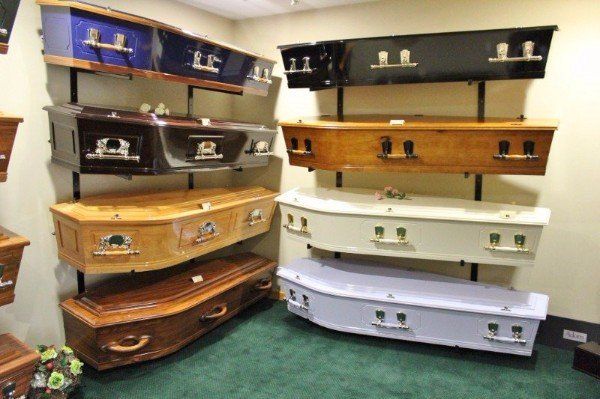
Cost, Payment and Funeral Grants
Cost of a funeral
To accurately calculate the cost of a funeral, requires a multitude of decisions be made in regard to the many products and services that encompass a funeral service. These include caring for the deceased, organising and conducting the funeral service and facilitating the final resting place of the remains; i.e. cemetery plot and fees, cremation, ashes interment/scattering, plaques and headstones, whichever are applicable.
There is not a one size fits all. Even with package deals, people often want to delete or upgrade items.
How we can help you?
We offer you a no obligation discussion of all the options available and provide you with a written estimate. We keep you up to date with any changes should you choose other options throughout the process. Our aim is to have no surprises when the account arrives in your mailbox.
Payment terms
We operate our accounts payable under normal terms of business. Once we receive the death certificate, we will issue the account to the family or solicitor two weeks after the funeral, with payment due between 4 - 5 weeks post date of death. Should your circumstances limit your ability to adhere to these terms of payment, we are always open to discuss them with you at the time of engagement. You may be entitled to grants, depending on the circumstances of the death, your income and relationship to the deceased. For information about Funeral Grants please see below.
Funeral Grants
ACC
If it has been deemed that someone has died an accidental death then you may be entitled to assistance from ACC to help with funeral costs.
The cause of death must be known before ACC can pay any compensation, this being determined by the Coroner. If there is to be no inquest, after the cause of death is established, ACC payments can be made immediately.
You can find out more by contacting ACC on 0800 222 075 or see www.acc.co.nz
for more information.
Work & Income
A means tested funeral grant may be available based upon the situation of the deceased.
This must be applied for by the family NOT by the Funeral Director, however we are happy to assist you with the process of applying. You can contact Work and Income on 0800 559 009 or on their website
Venues
You can hold a funeral service at almost any location. Either at your place or ours, and there are a wide variety of excellent venues and locations across Mid & South Canterbury. Here are some venues we have used, that may assist you with your choice.
Catering options are available at all venues.
Geraldine & District Venues:
Geraldine Funeral Services
Salisbury Memorial Park & Crematorium
Stonebridge Function centre and garden
Geraldine Town & Country Club
Primary School Community Hall
Woodbury Hall
Church of the Immaculate Conception (Catholic) Church (Catering in Church centre)
St Mary’s Anglican Church
St Andrews Church (catering in Church Hall)
Rugby Club
Orari Hall
Peasant Valley Hall
Carew Hall
Temuka & District Venues:
Galbraith Funeral Services
Alpine Energy Community Centre
Trinity Presbyterian Church & Complex
St Josephs Church
St Josephs Hall
St Peters Anglican Church and Parish centre
Temuka Baptist Church
Temuka RSA Lounge
Ashburton & Methven
Trotts Gardens & Chapel
The Sinclair Centre
Rugby Club rooms
Tinwald Memorial Hall
Mt Hutt Memorial Hall
Ashburton RSA
Most denominational Churches
Wherever you choose to hold the service, we will liaise with the venue management
and make all the necessary arrangements.
Viewing The Body - Time Together
Spending time with the person who has died affords you the opportunity to have private and valuable time together before the service. Those who take this time feel that it aids their grieving process and adds to their memories in a positive way and begins the process of accepting the reality of their death.
Viewing is of course a very personal choice with each family member making a choice that it right for them.
Gifts of love such as cards, letters, photos, small gifts and flowers can be left with them in the casket.
They will in the casket of choice, dressed in the clothes that you have provided, looking their best.
Most times they will look like themselves and sometimes they will not look quite so much like they did.
This depends upon their state at time of death but we do everything we can to present them at their best at all times.
For some who have not looked good at their time of death, after embalming and preparation has taken place, they can look so much better, which is a great relief and source of joy at a time when sadness prevails.
Going Home.
Taking the casket home enables you to spend more quality time together before the service and again is a personal choice.
Should children be encouraged to view the body?
This is a decision for the parents to make. In our experience children are a lot better at dealing with death than we give them credit for and they like to bring gifts, drawings and significant items to express their love and loss that can be left in or on the casket.
This can be a time to write messages on the casket. Some types of caskets can be written on by family and friends at the time or viewing or before the service. See Caskets and Urns
Preparation of body before viewing.
Should you choose to view, then some form of embalming treatment may be necessary for preservation and presentation of the body. See Embalming, Clothing and Dressing.
We have private and comfortable viewing facilities where you can spend time together either individually, as a family.
We will ask you at the time of arranging the service if you wish to spend time together.
If you have any questions in regard to viewing please don't hesitate to ask us.
Back to the top ^
Embalming, Clothing and Dressing
Embalming and Preparation:
People have mixed feelings about embalming and aren’t sure about its relevance in modern society. Without it, nature will soon take its course.
Embalming serves three main purposes:
- Sanitation: The body is cleaned and made safe for handling and viewing.
- Preservation: Embalming allows more people to grieve and say goodbye. The body can be taken to your home, chapel, or a Marae with no fear of odour or deterioration. (Please note that in some situations this may not be appropriate and consultation with family on individual situations is always our first step.)
- Presentation: If you would prefer a wake or open casket funeral, embalming can in most cases, restore some of your loved one’s natural appearance which can bring comfort and a sense of relief to mourners. This is best done in consultation with the Funeral Director.
Some cultures and religions have specific requests around preparing a body for burial and cremation and we will do our best to balance family desires and cultural practices with Health and Safety law. Your best course of action is to always ask your Funeral Director as early as possible during the preparation process. We are here to help you and accommodate your wishes as best we can.
The Funeral Director will liaise with the Embalmer in relation to the date of the funeral, the condition of the body and other circumstances as to whether embalming is required.
If it is a direct cremation then no embalming may be necessary.
Clothing and Dressing:
Being dressed in our own clothes is a vital part of who we are. We wear clothing to preserve our dignity, to keep us warm and to look and feel nice.
For our dead, we provide their clothing for their dignity, to honour who they are and for presentation should we wish to spend time with them before the service.
What to provide:
A full set of clothing including undergarments, plus any accessories i.e hats, jewellery, cosmetics and items of significance to them or the family.
We normally dress the person and place them in the casket however in accordance with cultural considerations or personal requests, the family may decide to assist in the process.
